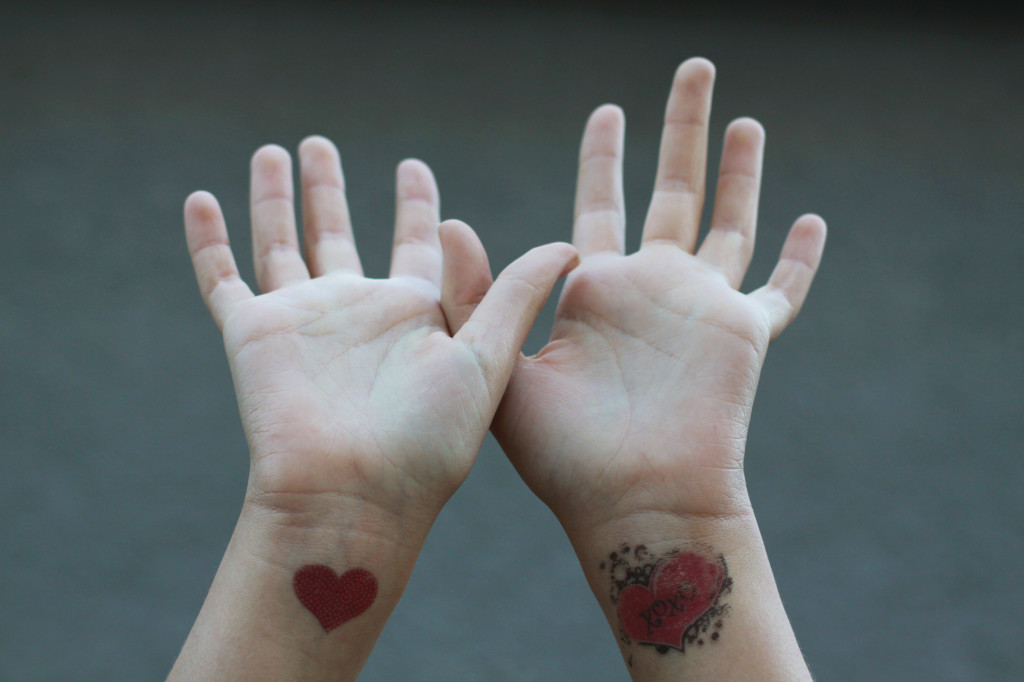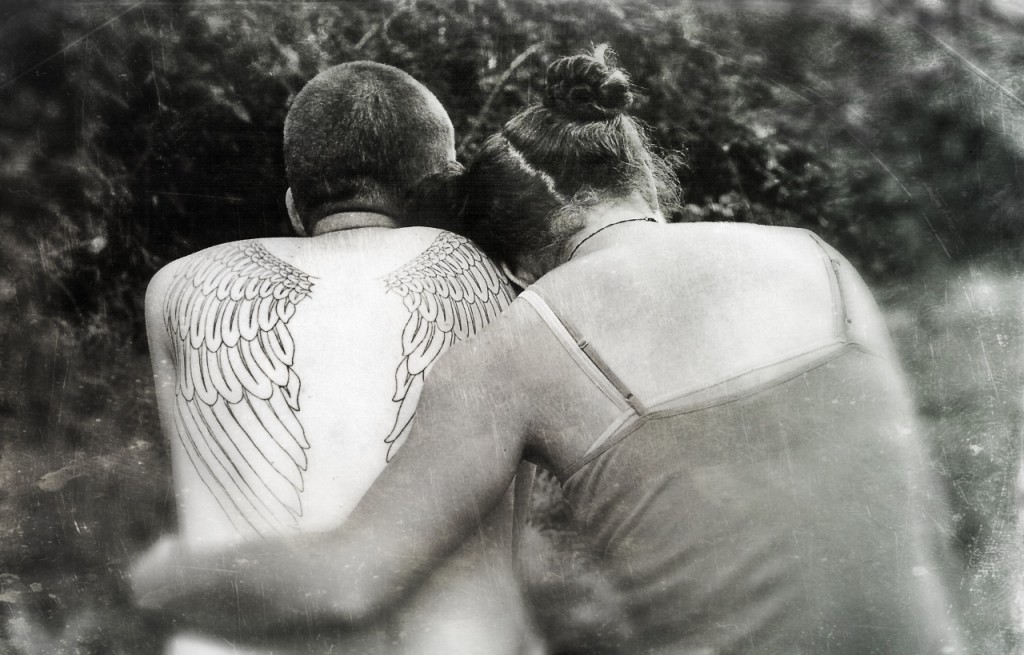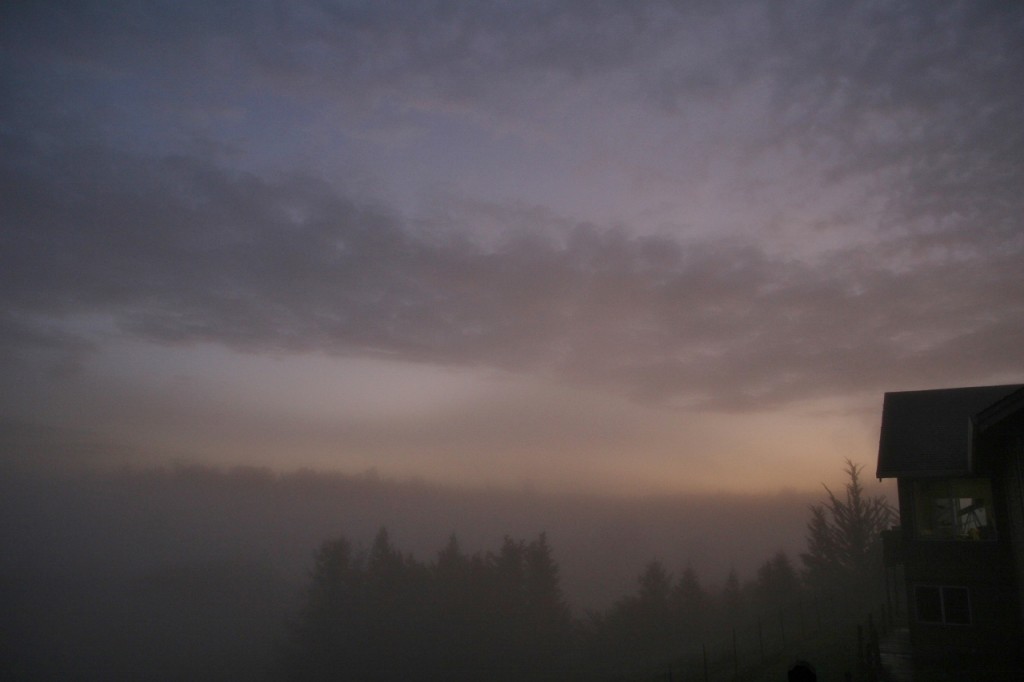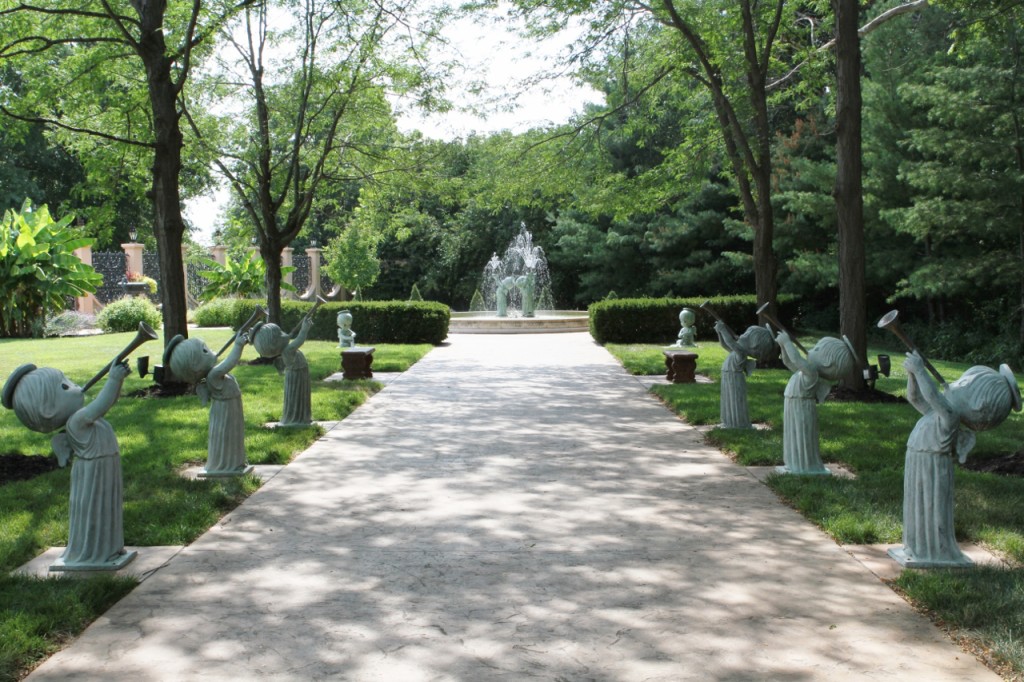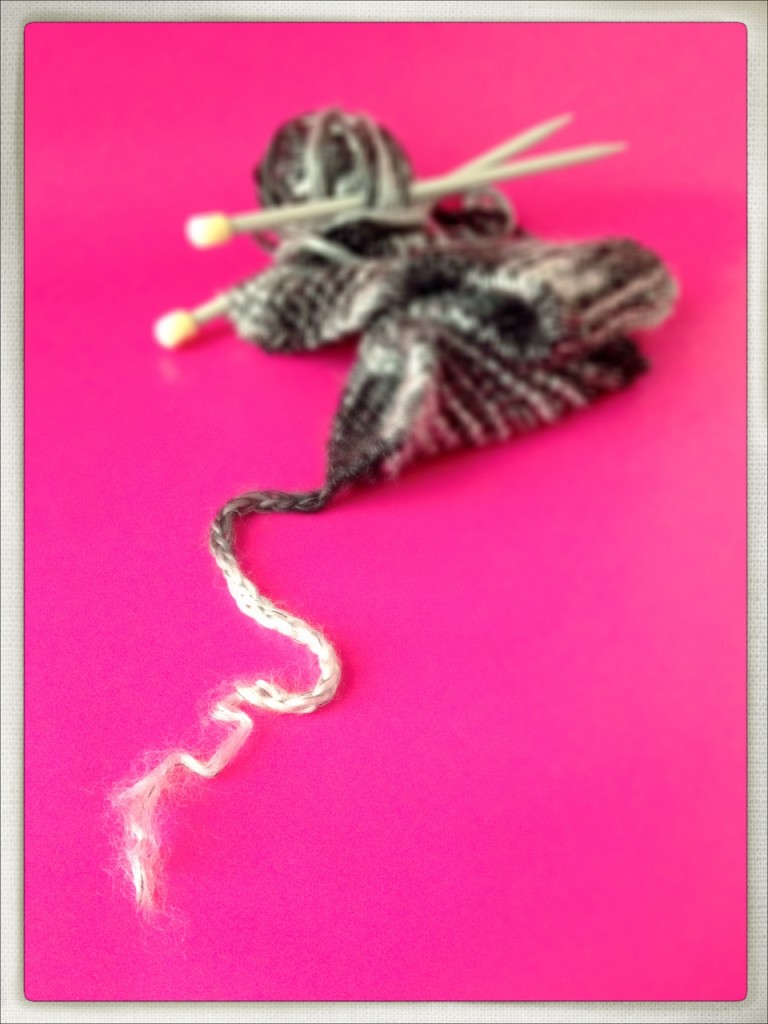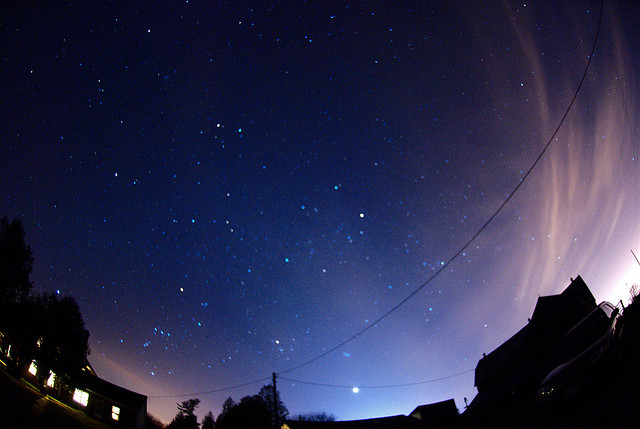
By Andrea Mummert Puccini
Maybe it’s nothing to be proud of, but tonight I felt my life coming together at a chichi grocery store. At home, things are in disarray, beyond disarray: the result of multi-front home improvement projects undertaken by my husband Stephen, perfectionist and reluctant decision maker.
Acrid fumes volatilize from newly varnished kitchen cabinets. The bathroom stands hallow, stripped of its porcelain fixtures. On the wide douglas fir boards where the tub once stood, the contractor applied an outdoor-only rot-prevention paint. Cursory internet searching vaguely links its ingredients to neurological problems. An oil-based primer seals off that toxic layer but simultaneously introduces hydrocarbonic vapors to the mix. A layer of dust covers the floors, ledges, and window sills. Mostly disintegrated plaster, but molecules of cancer-causing petrochemicals certainly encase each tiny particle.
All of this might be okay for us, but not, I think, for the developing lungs of our not-quite two-year-old son Nico.
We have already been staying at two other places, first a housesitting gig, then the rental house next door ours, until it was rented, which it now is. There is nowhere to go except Miriam’s, while she and her two kids are back east visiting family.
After work, I pick up Nico from his sitter’s and meet Miriam at her house to put dibs on it. If I feed her cats, we can stay there. It buys us a week out of our place.
Miriam tours me around, apologizing for the mess. She opens the door to her playroom, swinging it wide with a ceremonious ta da gesture. Behold. Here, a child’s plastic basketball hoop, the net torn, juts at an angle from a cardboard box sliding off a Navajo rug folded across the arm of a badly cat-scratched sofa. Nearby, a red and black checkerboard and two palm tree bookends are viewable in a thirty-two–gallon aquarium. Normally I don’t care anything about messes, but with this much chaos I’m concerned that keeping an exploring toddler out of trouble will be a challenge. I make a mental note to keep this door shut.
Cats are independent. This sink drain goes nowhere. The water gets hot quickly. The door is locked when the knob’s button is horizontal.
“This is Maya’s pet beetle.” A little roll of Miriam’s eyes. “It was one of those meal worms. Its name is Pepsie. I don’t know what she’s doing.”
(Assume it will die. Assume it won’t stay in the container.)
“Maybe,” Miriam ventures, “when we’re back, you could stay at the house down the street that’s for sale. You’d love it. There are so many kids around, and it’s nice to be so close to Whole Foods. We even memorized the dinner sales. Monday night is burritos. Wednesday, the rotisserie chickens are only six dollars. “
I say yes. Yes to the chickens. I bought a rotisserie chicken at the Co-op last week. It was the best thing I did all month.
She agrees. “My kids love it. I got three meals out of it!”
Our enthusiasm is delivered slightly deadpan, winking and grimacing to ourselves. After all, I once made a practice of pressing my own soy milk to avoid the non-recyclable foil lined packaging. But now I embrace chicken in a plastic bubble.
Miriam and I agree to meet up at Whole Foods after she makes a spare key to the house.
•••
Gleaming steel grocery cart, with a tray projecting in front of the child seat. In the style of a cookie cooling rack, the tray has narrowly spaced metal bars such that Nico’s little wooden Gold Dust Thomas Choo Choo can perch at an angle between two bars without falling through. Off to one side, a circular gap in the tray can hold his sippy cup. This thing was built for us.
Even so, it’s difficult to get through the store. Tired and hungry, Nico writhes in the seat, straining against the nylon seat belt. He grabs my coat collar and tries to pull himself out. He yells.
At last the checkout line. And there at the end I see just the set up I was looking for:
Tall tables, bar height, and stool chairs. Twisted cast iron legs and slate tops. Behind the table, a smoky-gray tinted mirrored wall, an attraction, engagement for a toddler. More wholesome than TV, like a fish tank.
I must have expected to look alright by that half light, because I startle at my first glimpse of myself in the mirror, dark circles under my eyes, my hair pulled tight with frizz escaping along the hairline. I do look how I’m always afraid of: old.
But, hey, the cart pushes right up to the table, the seat at just exactly same height as the tabletop.
Looking down at our browned chicken, condensation forms under the plastic dome. A paper ribbon seals the package. Everything would be perfect if I had a knife and napkin. I can’t muster the will to leave the table and venture to the silverware bar.
I pull the chicken apart with my fingers, but the avocado?
Nico screams, “AVO AVO!”
He is loud. People in line look at us.
One man radiates judgment. Does he think this is how we eat every night? An entire encapsulated chicken between us? Popping the airtight seal to tear meat from its bones?
I look over toward the counter of silverware, and there is Miriam, wondrously materialized, bringing napkins and forks and knives and Maya.
We take up a conversation that we, two mid-Atlantic transplants to central California, have been having since we met seven years ago. Without even mentioning any of it, we talk about the greenery, the rain all year, the architecture, the pull of home.
“How long have you been here?”
“Eight years.”
“You?”
“Twenty years. And you know, as recently as last summer thought I’d move back, but not anymore.”
“How old are you now, Maya?”
“Seven.”
I had been staying with Daniel while Miriam and her friend made the trip to bring Maya home from China. When I ask how she did it, I don’t mean it to be patronizing. I remember the autism parents who have said simply you would do it too.
But Miriam says, “I don’t remember. I felt called.”
I don’t remember her complaining.
She says she actually doesn’t remember much of the first couple years, when Maya was one and two, and Daniel was four and five. It was too busy to remember.
As we talk, I recall the stone statues of basket-carrying ladies just outside that adorn the exterior roofline of this grocery store and remember an essay that came through my writing group describing their architectural and mythological history. Remembering those moments of hearing that essay cinches that time together with this time at the table, the stitches of my life gathering tighter. The mirror behind the table reflects Miriam and I, where we have arrived through this more than half-decade of conversation.
And with these threads pulling through time, I am back in memory to a day in Virginia, snow flurries swirling out the window all day and late afternoon as dark falls, until I had to turn on the porch light to check if they were still falling. One year to the day after you died, Mom.
There in the kitchen, I reflected on Isak Dinesen’s writing about the pattern of a life, a pattern that can only be discerned with the space of time. As if looking down from above on a person’s life—the movements and places travelled—the pattern will emerge like a constellation shape. I believe Dinesen described the shape of a wading bird, but I never have been able find those words again. In the Virginia kitchen, warm and light with snow outside, I thought of your life. What was the bird pattern? Was there one, if you had trouble seeing it even at the end? What if the path never did arrive?
I think of you talking about the way you would watch your Christmas tree. Your childhood trees with real candle flames and weighted metal tinsel lametta sparkling. Shining silver balls hanging half hidden toward the interior branches. Light glinting between these and the ornaments with miniature scenes inside half-glass globes. On our oral history tape you said, I remember just sitting in front of the tree. The reflections of all the little lights. I could just sit there for hours and watch it, because the icicles would move because of the natural candles, because they would move. A door opened or some little wind would come, and it was going through the whole tree and it shifted all to one side.
I imagined your life as that tree, a web of moments, points, reflecting back and forth each other, amplifications and interferences. All the moments like tiny hanging mirrors.
The next day, when I get to Miriam’s, there will be a note on the container where Maya’s beetle lives. In blue crayon, in child’s variably sized lettering, it says:
Please chang apple every DAY (drawing of beetle) Two little sqeres of apple (heart).
Also labeled are Pepsie bed and Pepsies tunnel.
Most of the week, I ignore Pepsie. He has a chunk of apple, although it looks browned and withered on the outside. On the last day, I cut a small fresh slice and put it next to Pepsie’s toilet paper roll cave, and, unbelievably, he trundles out right away, and extends some sort of proboscis and sucks, sucks and sucks, on the apple.
I leave Maya a note: I think Pepsie missed you.
But this I don’t know yet as Miriam and Maya and Nico and I finish dinner together, and somehow it feels leisurely.
Before I head home, I pat my pocket and discover the change that I’d scavenged from my car the day before, when I’d planned to get some cocoa but then misplaced my car keys and missed the chance.
I walk up to the beverage counter to buy cocoa for the road. The young man tells me that Harvest Cocoa is the drink of the hour. I can get any size I want for the price of a small. I get a medium.
Carrying it in one hand, I push Nico out to the car. It is dark, and light sprinkles have started.
One of the first rains of the year in this place where we go months without rain. The rain feels like everything. The dirt, the leaves, the stomata, the dirt, even the sand in the sidewalk opens up. Like pores. Breathing. Drinking. Petrichor.
Driving now, I pull the car off the dark access road into an Amaco station, lit bright as an alien outpost. I swipe my magnetic strip and stand by. I try not to inhale too deeply the vaporized hundred million year old liquefied remains of giant reptiles as they are pumped above ground to burn in the furnace of my car, propelling our course home.
Tank full, I swing out and onto the highway ramp.
We drive the twelve straight miles on the highway. Through fine rain drops, red tail lights stream out in front of me and white lights trail the other way. And I am so surprised to register a net of connection around my heart as we slip along this path of least resistance.
•••
ANDREA MUMMERT PUCCINI is a mother, environmental biologist, and writer. She is a native of Maryland and the Chesapeake Bay lowlands. She now lives in northern California with her husband and two sons, where she works with farmers and ranchers to improve water quality and create wildlife habitat on agricultural lands. She co-authored California Wildlife: Conservation Challenges prepared at the University of California, Davis, and her work has appeared in the Yolo Crow, Pilgrimage, River Teeth online, and a number of scientific journals. She can be reached at http://andreamummertpuccini.blogspot.com/

 Follow
Follow

